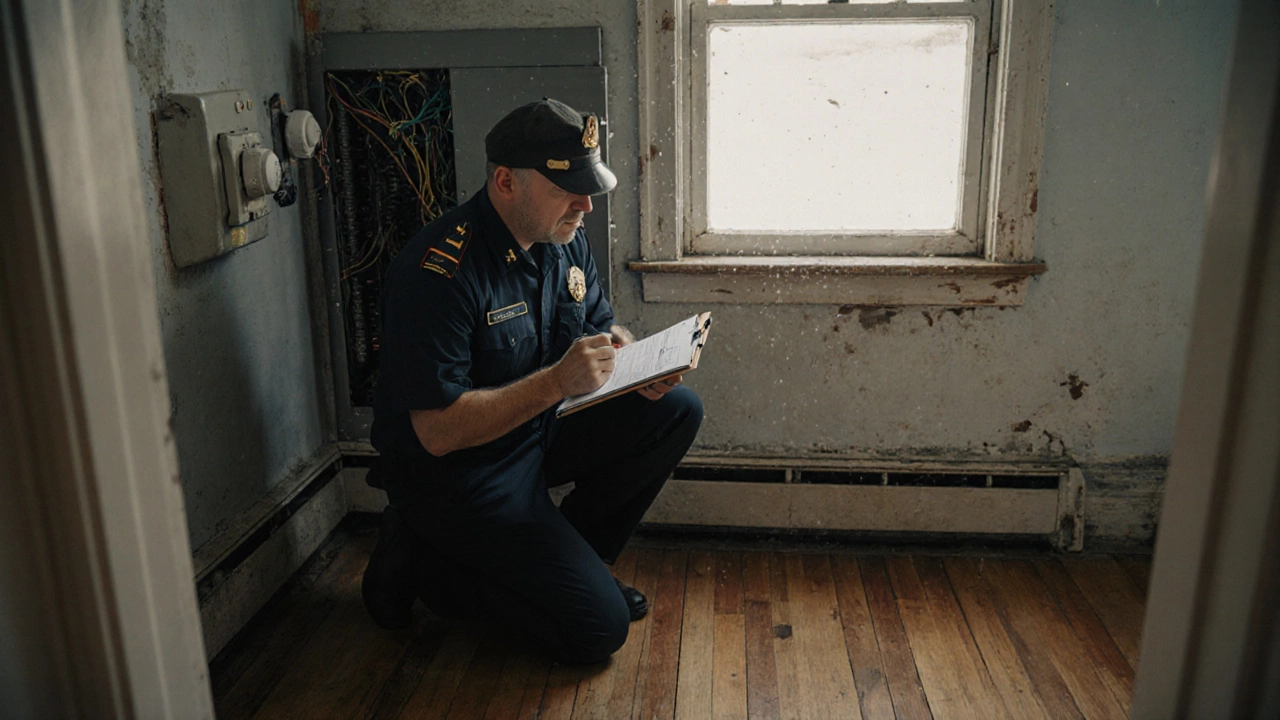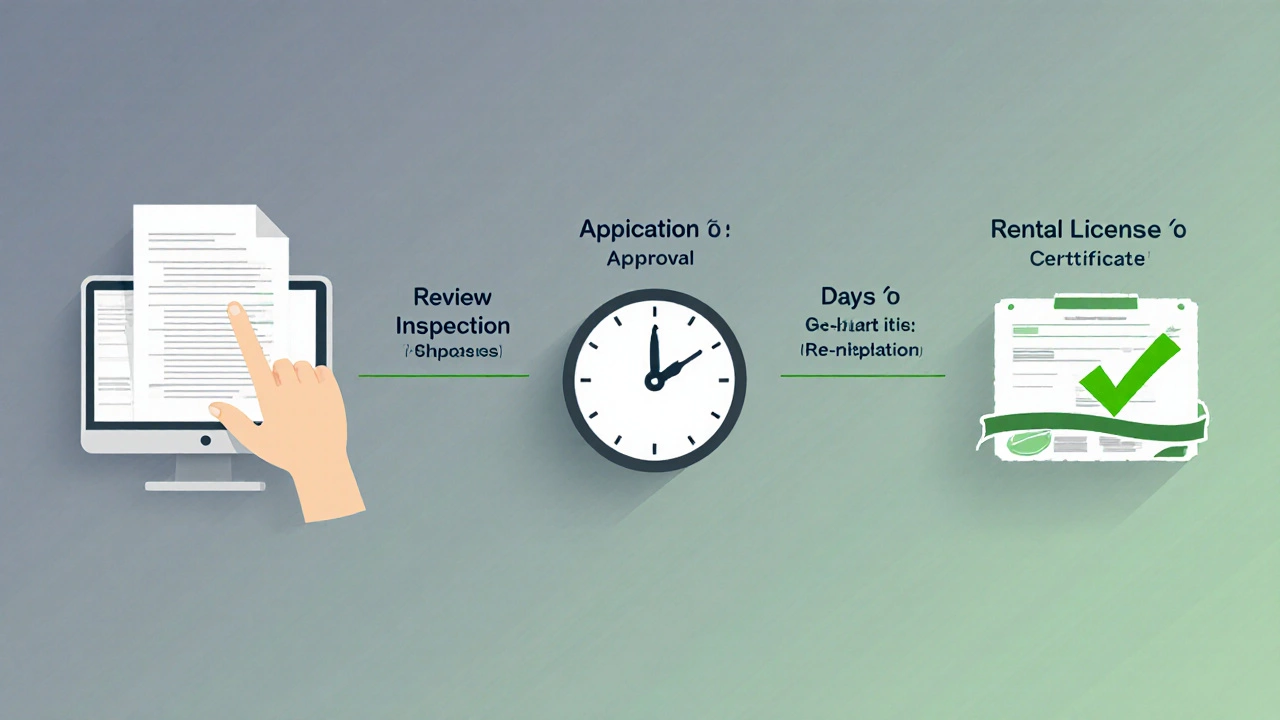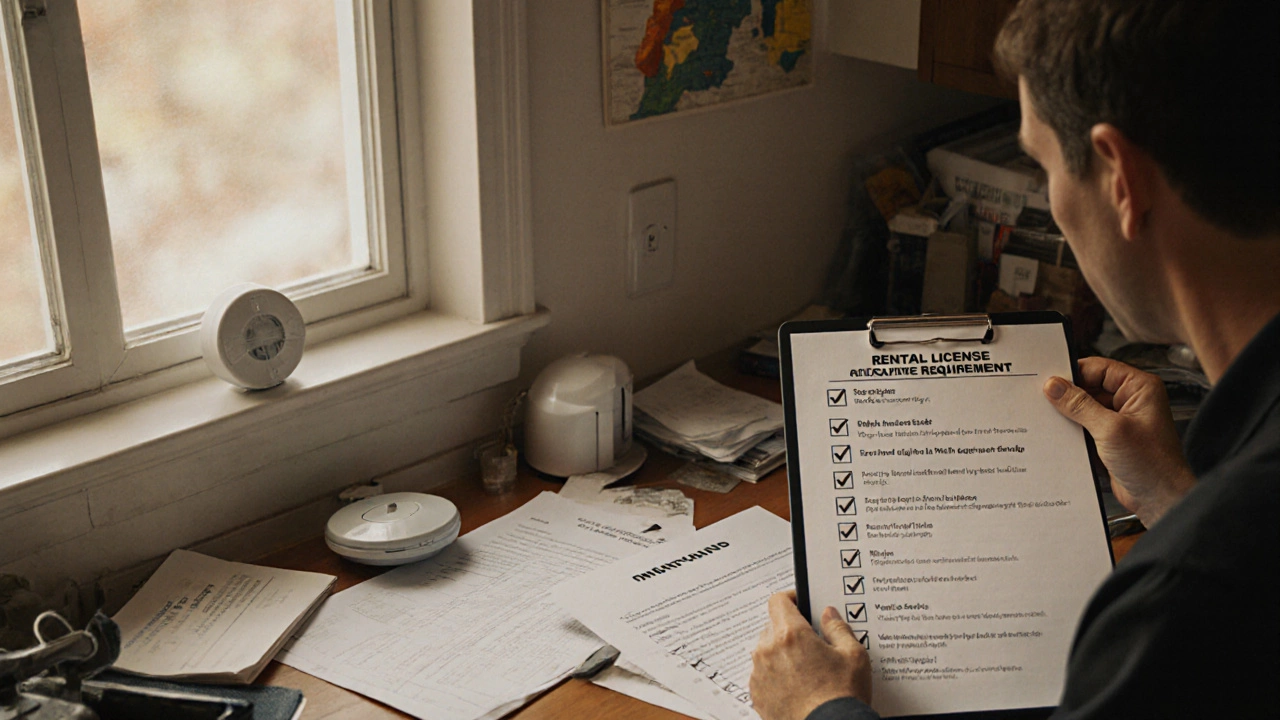Maryland Rental License Processing Time Calculator
Processing Time Estimate
Note: These are average processing times. Actual processing may vary based on application completeness, inspection results, and county workload.
If you're thinking about renting out a property in Maryland, you might be wondering: how long does it take to get a rental license? The answer isn’t simple-it depends on where you are, how complete your paperwork is, and whether your property passes inspection. But here’s the reality: in most counties, you can expect the whole process to take between 2 and 8 weeks. Some places move faster. Others drag. And if you skip a step, you could be waiting months.
Why You Need a Rental License in Maryland
Maryland doesn’t have one statewide rental license. Instead, each county and city runs its own program. That means Baltimore City has different rules than Montgomery County, and Annapolis has its own checklist. But the goal is the same: make sure rental properties are safe, habitable, and properly managed.Without a license, you can’t legally rent out your property. Tenants can sue you for illegal rentals. You can be fined up to $1,000 per violation. And if you ever try to sell the property, buyers will ask for proof of compliance. It’s not optional-it’s the price of doing business.
What’s Required to Apply
Before you even submit your application, you need to have these things ready:- Proof of ownership (deed or title)
- Proof of liability insurance ($100,000 minimum in most areas)
- Property address and unit details
- Landlord’s contact info (name, phone, email)
- Application fee (ranges from $50 to $300 depending on location)
Some counties also require:
- Background check for the landlord (especially in Baltimore City)
- Proof of compliance with housing codes (no structural hazards, working plumbing, etc.)
- Registration of the rental property with the local tax office
Don’t assume your property is automatically compliant just because it’s been rented before. Many older homes in Maryland have lead paint, outdated wiring, or missing smoke detectors-these are red flags that will delay your approval.
The Inspection Process
This is where most applications stall. After you submit your paperwork, the local housing department schedules an inspection. The inspector checks for:- Working smoke and carbon monoxide detectors
- Proper electrical outlets and wiring
- Non-leaking plumbing and functioning toilets
- Safe stairs, railings, and exits
- Lead paint disclosure (for homes built before 1978)
- Minimum square footage per occupant
Inspections usually happen within 7 to 14 days after you apply. But if your property fails, you get a list of violations. Fixing those takes time. Re-inspection fees can add $75 to $150. And if you don’t fix the issues within 30 days, your application is denied.
In Baltimore City, inspections are done by the Department of Housing and Community Development. In Prince George’s County, it’s the Department of Permitting Services. In Frederick County, it’s the Office of Code Enforcement. Each has their own schedule, and some are backlogged.
Processing Times by County
Here’s what you can realistically expect in the most populated areas as of 2025:
| County | Application Review | Inspection Wait Time | Re-inspection Wait (if needed) | Total Estimated Time |
|---|---|---|---|---|
| Baltimore City | 5-10 business days | 10-21 days | 7-14 days | 4-8 weeks |
| Montgomery County | 3-7 business days | 7-14 days | 5-10 days | 2-5 weeks |
| Prince George’s County | 7-14 business days | 14-21 days | 10-14 days | 5-8 weeks |
| Anne Arundel County | 5-7 business days | 7-10 days | 5-7 days | 2-4 weeks |
| Fredrick County | 3-5 business days | 7-10 days | 5-7 days | 2-3 weeks |
Notice a pattern? The bigger the county, the slower it tends to be. Smaller counties like Frederick and Carroll move faster because they have fewer applications. If you’re in a rural area, check with your county clerk-some don’t even require a license, but they still require registration.

How to Speed Things Up
There’s no magic shortcut, but you can avoid the biggest delays:
- Fix problems before you apply. Get a pre-inspection from a licensed home inspector. Spend $200 now to avoid $1,000 in fines later.
- Submit everything at once. Missing one document means your application goes to the bottom of the pile. Double-check the checklist on your county’s website.
- Apply online. Most counties now accept applications digitally. Paper applications take 2-3 times longer to process.
- Follow up politely. If it’s been over 3 weeks and you haven’t heard back, call the licensing office. Ask for the name of your case officer. A quick email or call often moves things along.
Some landlords hire property managers who handle the entire process. That’s fine-but make sure your manager has done this before. One bad submission can cost you weeks.
What Happens If You Rent Without a License?
It’s tempting to skip the license if you’re trying to get a tenant in fast. Don’t. Here’s what can happen:
- You can’t legally evict a tenant for non-payment. Courts won’t enforce leases without a valid license.
- Insurance claims for property damage may be denied.
- Tenants can sue you for up to three times the rent paid if they prove you rented illegally.
- You’ll be fined $100-$1,000 per month per unit.
- When you sell, title companies will refuse to close until you prove compliance.
One landlord in Silver Spring rented out a 3-bedroom house without a license for six months. He got caught when a tenant reported him. He paid $6,000 in fines, lost his security deposit claim, and had to pay $12,000 to fix code violations. He didn’t rent again for 11 months.
Renewals and Ongoing Requirements
Your rental license isn’t permanent. Most counties require renewal every 1-2 years. You’ll need to pay a renewal fee, update your insurance, and sometimes submit a new inspection. Some places, like Baltimore City, require annual inspections. Others only require them if there’s a complaint.
Also, if you make major changes to the property-add a bedroom, convert a garage, install a new HVAC system-you may need to reapply. Don’t assume your license covers upgrades.

What If You’re a Non-Resident Landlord?
If you live out of state or out of the country, you still need a license. But you’ll also need to designate a local agent to receive legal notices and handle emergencies. This person doesn’t have to be a property manager-just someone who lives in Maryland and can respond to repairs or code violations within 24 hours.
Many out-of-state landlords use a real estate attorney or a licensed property management company. Make sure your agent is listed on your application. Failing to do so is a violation.
Where to Start
Go to your county’s official website. Search for “rental license” or “rental registration.” Don’t rely on third-party sites or real estate blogs-they’re often outdated.
Here are direct links to the most common county portals:
Download the checklist. Print it. Mark off each item as you complete it. Then apply online. That’s the fastest path.
What’s Next After You Get Your License?
Once you’re approved, keep records of your license, inspection reports, insurance certificates, and tenant communications. You may need them for audits, evictions, or future sales.
Also, stay on top of renewal dates. Set a calendar reminder 60 days before expiration. Most counties send a notice-but not always. Don’t risk losing your license because you missed a deadline.
Getting a rental license in Maryland isn’t hard if you’re prepared. It’s not instant, but it’s predictable. Treat it like a project: plan ahead, do the work early, and follow the rules. The time you spend now saves you from headaches, fines, and lost rent later.
Can I rent out my property while waiting for my rental license?
No. Renting without a valid license is illegal in all Maryland counties that require one. Even if you’ve submitted your application, you must wait for official approval. Tenants can legally break the lease and sue you for damages if you rent illegally.
How much does a rental license cost in Maryland?
Fees vary by county. In Baltimore City, it’s $200 for the first unit and $50 for each additional unit. In Montgomery County, it’s $100 per unit. In Frederick County, it’s $50 flat. Re-inspection fees range from $75 to $150. Always check your county’s official website for current rates.
Do I need a license if I rent out a room in my house?
It depends. In most counties, if you live in the home and rent out a room, you don’t need a license. But if you rent out a separate unit-even if it’s attached-you usually do. Cities like Baltimore and Rockville require licensing for all rental units, regardless of whether you live there. Check your local rules.
What if my property fails inspection?
You’ll get a written list of violations. You typically have 30 days to fix them. After that, you can request a re-inspection. If you don’t fix the issues, your application is denied. You’ll need to reapply and pay the fee again. Common failures include missing smoke detectors, lead paint hazards, and broken windows.
Can I transfer a rental license to a new owner?
No. Rental licenses are not transferable. When a property changes hands, the new owner must apply for a new license under their name. The previous owner’s license is canceled automatically upon sale. The new owner must pass inspection and pay the fee, even if the property was previously licensed.
